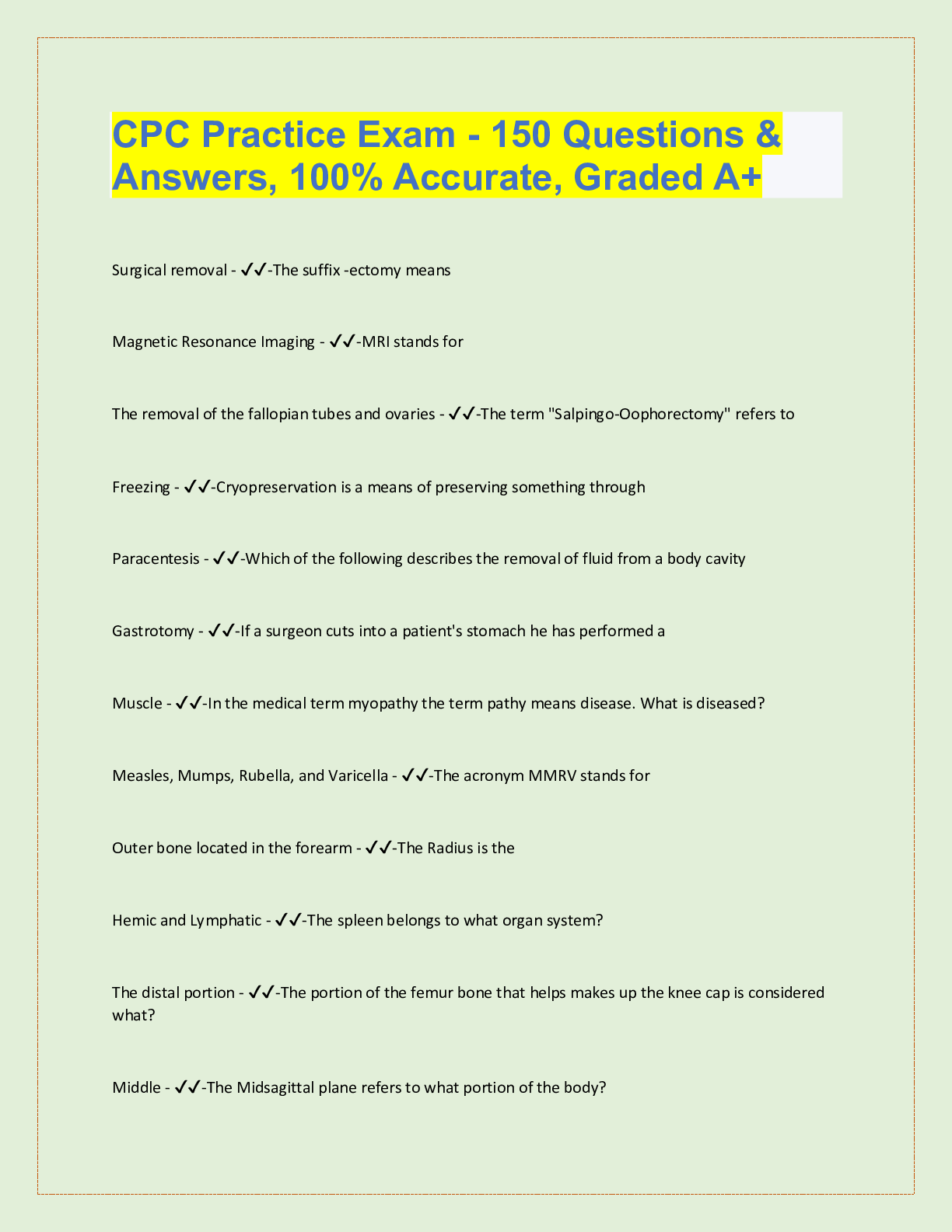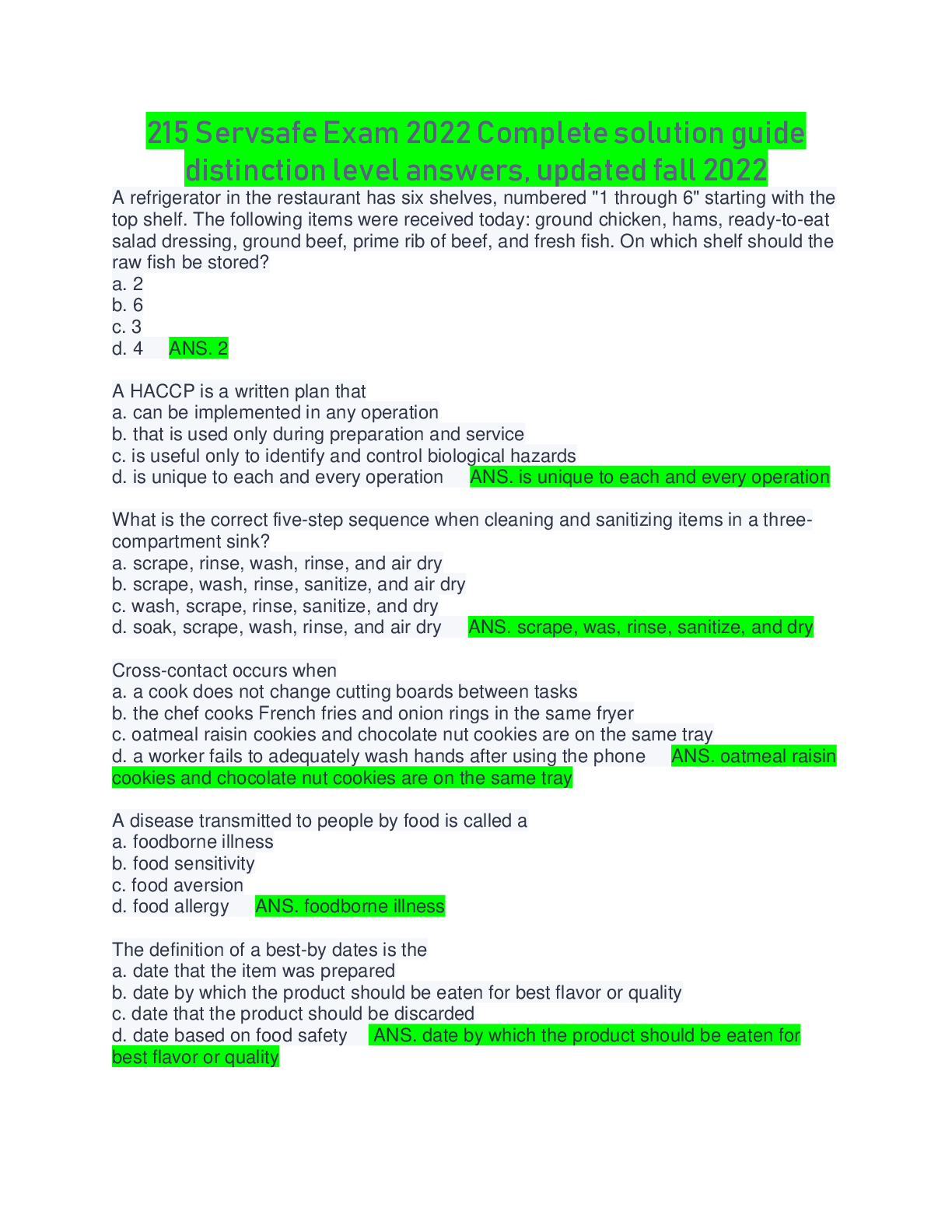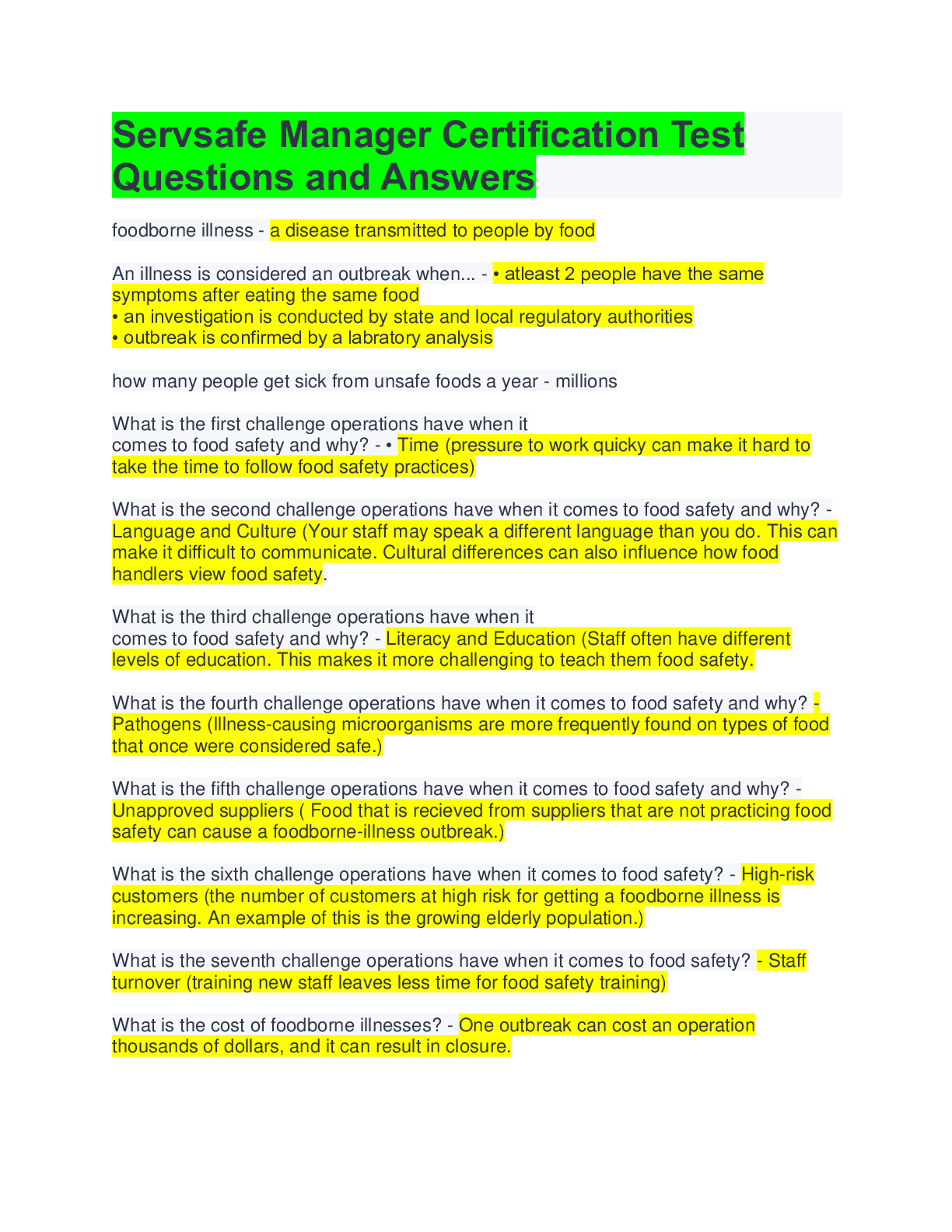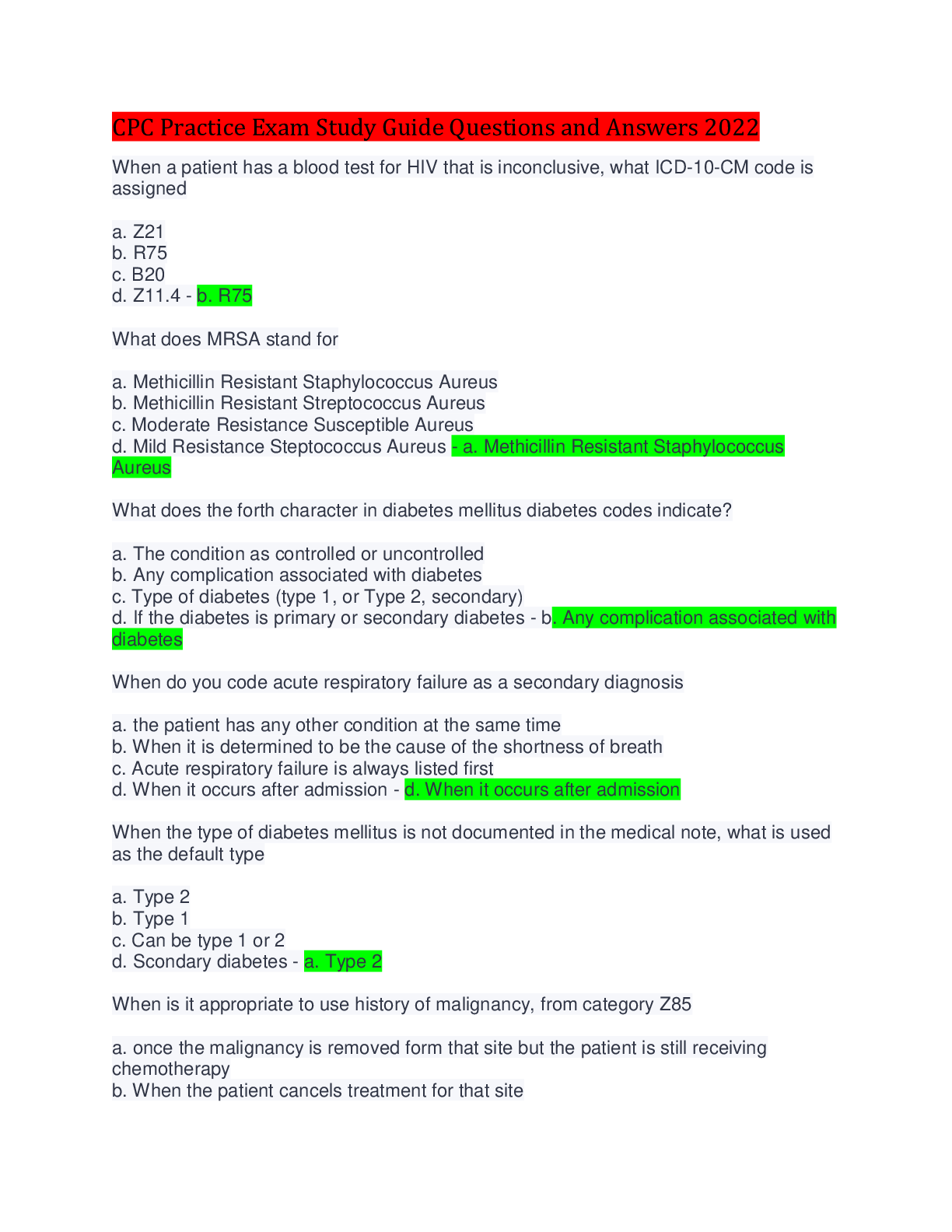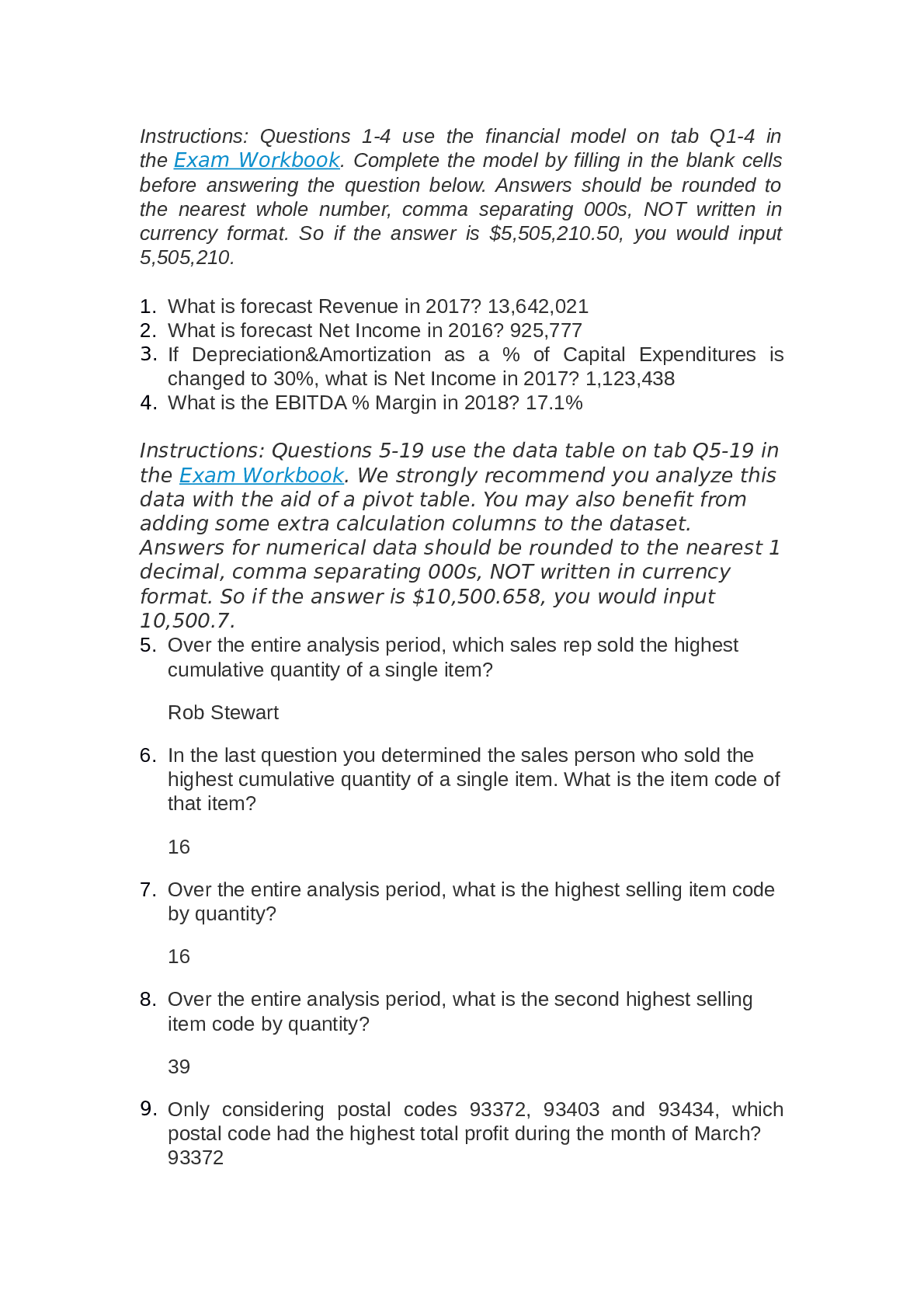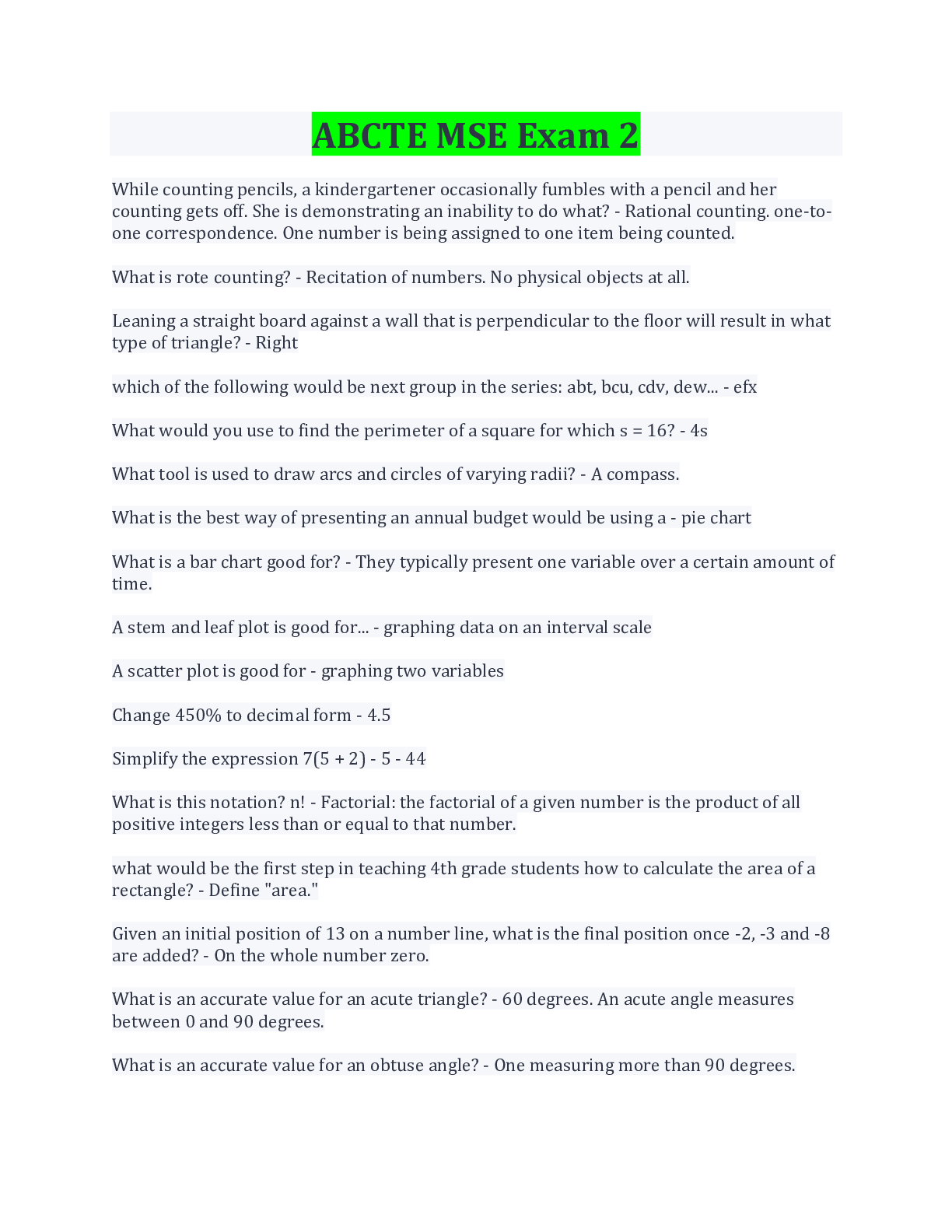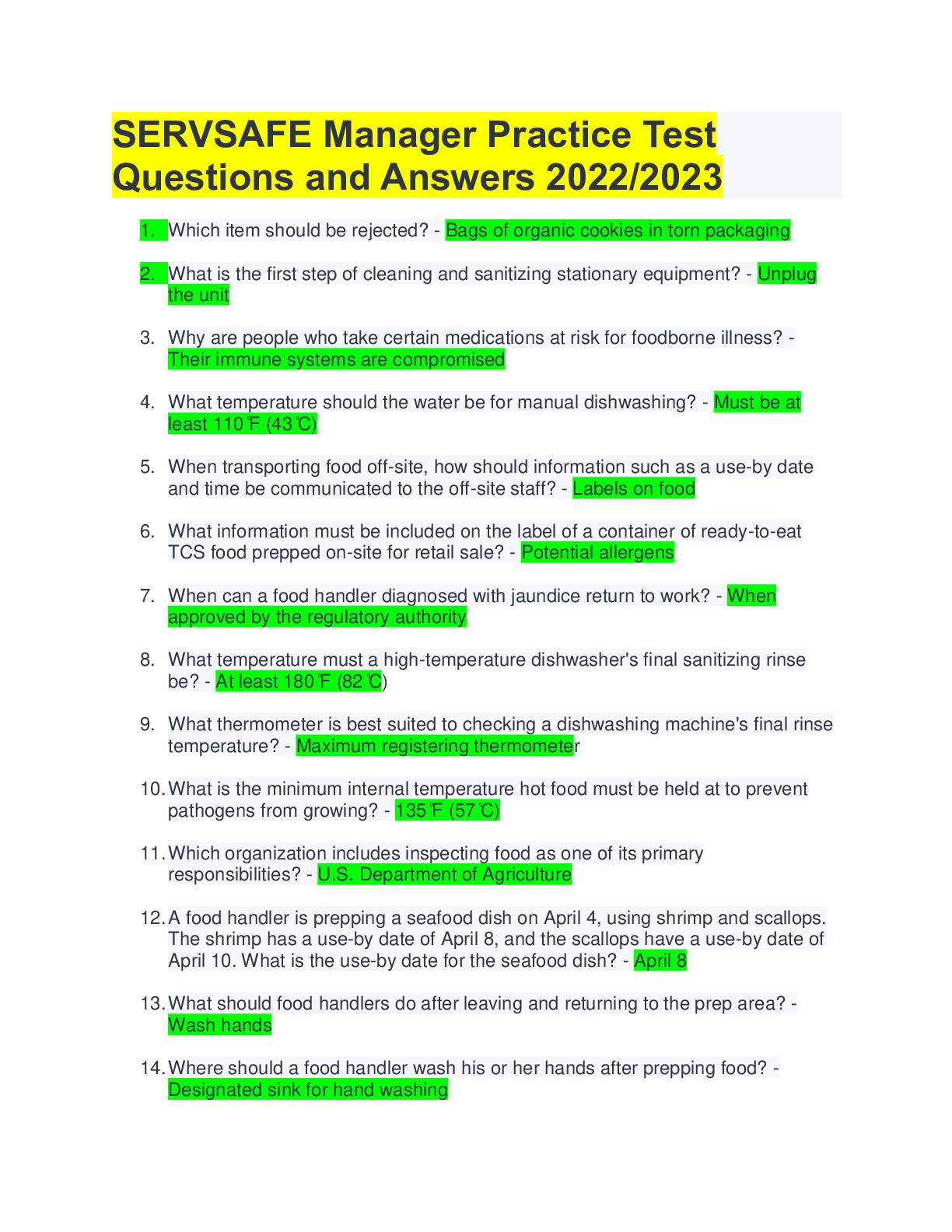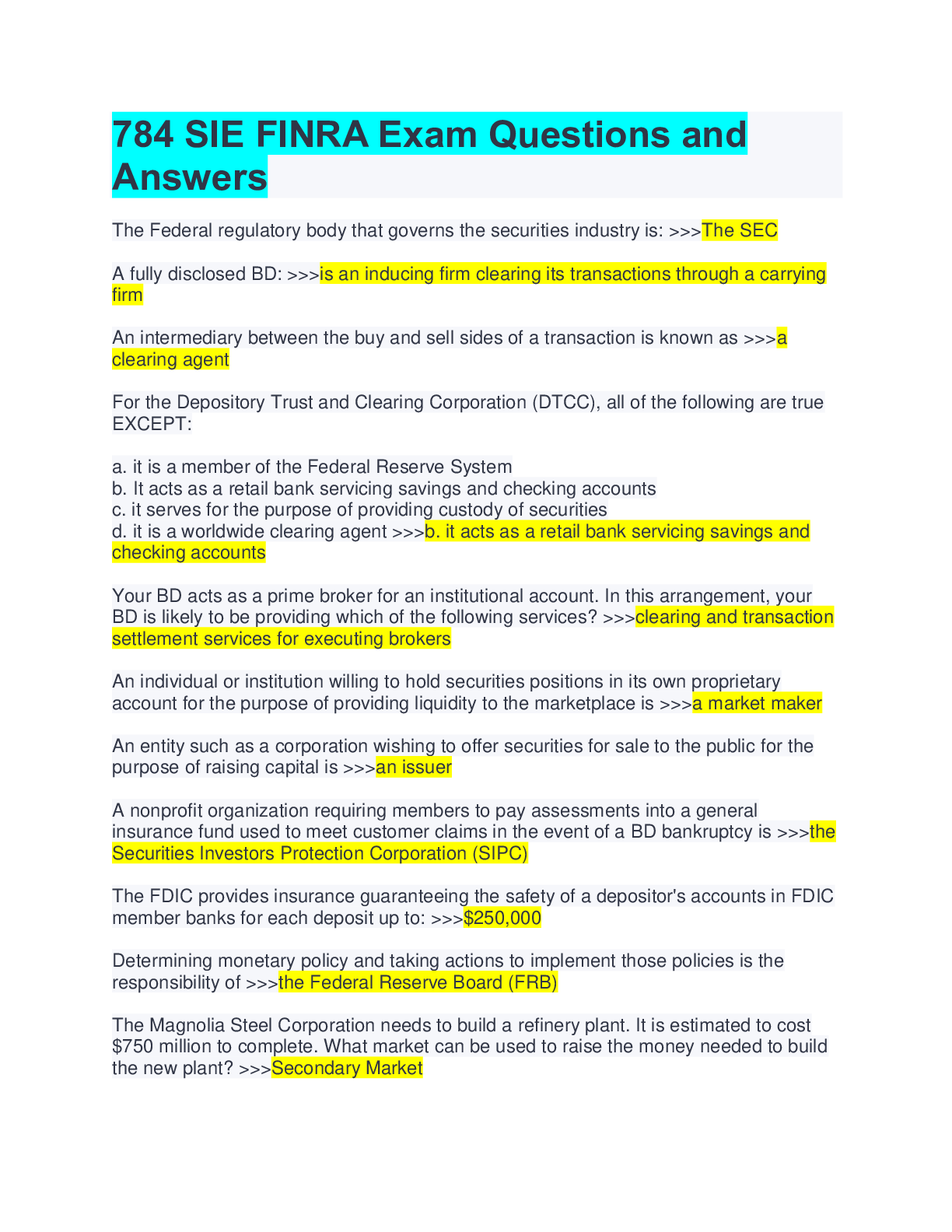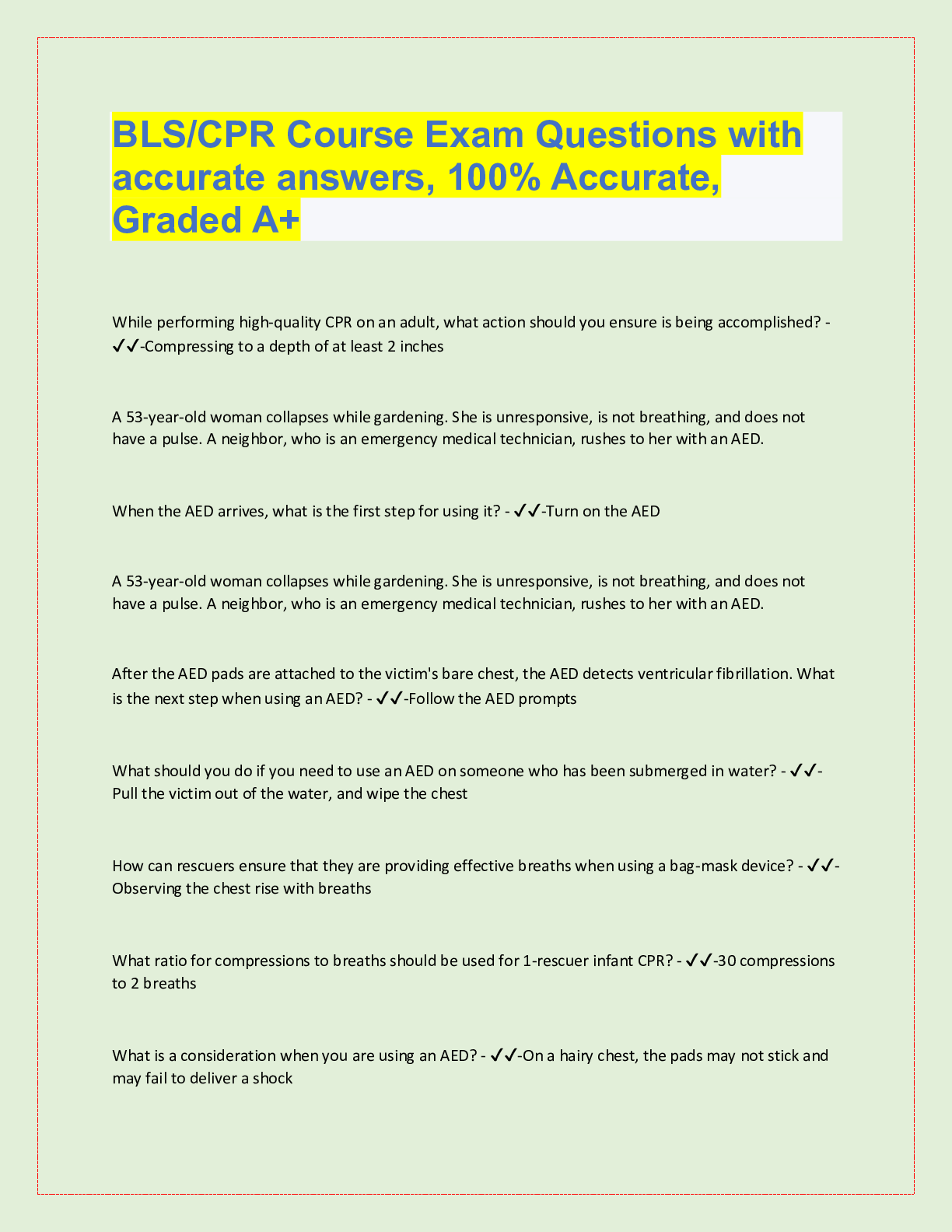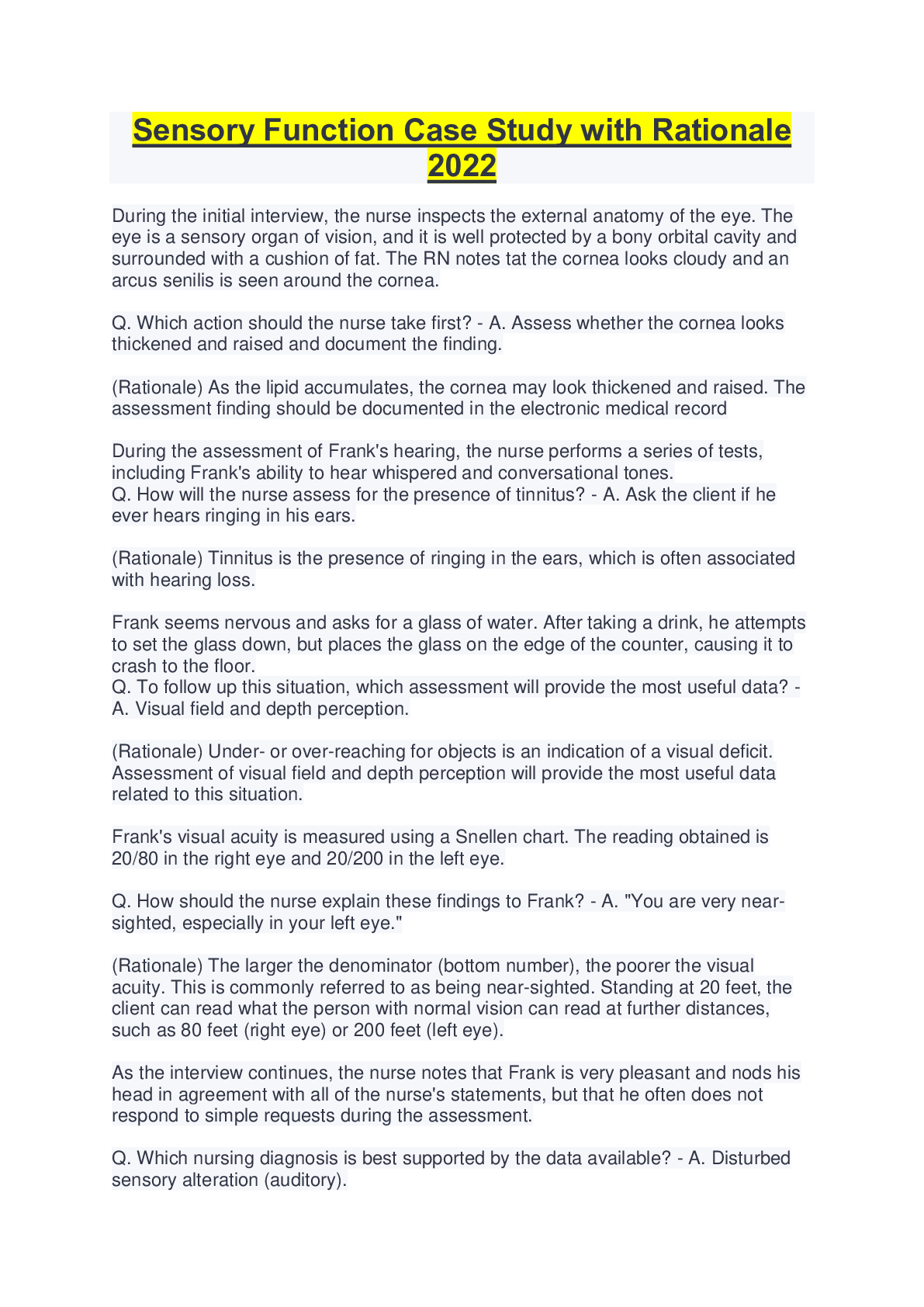*NURSING > QUESTIONS & ANSWERS > Sensory Function Case Study with Rationale – COMPLETE SOLUTION (All)
Sensory Function Case Study with Rationale – COMPLETE SOLUTION
Document Content and Description Below
Sensory Function Case Study with Rationale – COMPLETE SOLUTION During the initial interview, the nurse inspects the external anatomy of the eye. The eye is a sensory organ of vision, and it is we... ll protected by a bony orbital cavity and surrounded with a cushion of fat. The RN notes tat the cornea looks cloudy and an arcus senilis is seen around the cornea. Q. Which action should the nurse take first? - ✔✔A. Assess whether the cornea looks thickened and raised and document the finding. (Rationale) As the lipid accumulates, the cornea may look thickened and raised. The assessment finding should be documented in the electronic medical record During the assessment of Frank's hearing, the nurse performs a series of tests, including Frank's ability to hear whispered and conversational tones. Q. How will the nurse assess for the presence of tinnitus? - ✔✔A. Ask the client if he ever hears ringing in his ears. (Rationale) Tinnitus is the presence of ringing in the ears, which is often associated with hearing loss. Frank seems nervous and asks for a glass of water. After taking a drink, he attempts to set the glass down, but places the glass on the edge of the counter, causing it to crash to the floor. Q. To follow up this situation, which assessment will provide the most useful data? - ✔✔A. Visual field and depth perception. (Rationale) Under- or over-reaching for objects is an indication of a visual deficit. Assessment of visual field and depth perception will provide the most useful data related to this situation. Frank's visual acuity is measured using a Snellen chart. The reading obtained is 20/80 in the right eye and 20/200 in the left eye.Q. How should the nurse explain these findings to Frank? - ✔✔A. "You are very near-sighted, especially in your left eye." (Rationale) The larger the denominator (bottom number), the poorer the visual acuity. This is commonly referred to as being near-sighted. Standing at 20 feet, the client can read what the person with normal vision can read at further distances, such as 80 feet (right eye) or 200 feet (left eye). As the interview continues, the nurse notes that Frank is very pleasant and nods his head in agreement with all of the nurse's statements, but that he often does not respond to simple requests during the assessment. Q. Which nursing diagnosis is best supported by the data available? - ✔✔A. Disturbed sensory alteration (auditory). (Rationale) Clients with impaired hearing often smile and nod in agreement with the person conversing even though they are unable to clearly hear the conversation. Appearing to be inattentive, speaking loudly, and difficulty following directions are other indications of a disturbance in auditory sensory function. Q. In identifying this problem, the nurse clustered the assessment data and compared it with which information? - ✔✔A. Defining characteristics of the problem. (Rationale) The assessment data is compared with the defining characteristics of the problem to ensure that the correct problem is identified. The RN plans to assess subjective data about Frank's hearing loss. Q. When evaluating for hearing loss, which questions should the RN ask Frank? (SELECT ALL THAT APPLY) - ✔✔A. *Did hearing loss occur gradually or all at once? (Rationale) the RN wants to know the onset of the hearing loss. Presbycusis is the term for gradual onset of hearing loss which is usually worse in noisy environments. *Has your hearing decreased or do you just hear certain sounds?(Rationale) The RN is assessing the character of the hearing loss with the question. A marked loss is at low intensity but sound actually becomes painful when the speaker repeats in a loud voice. *Do ordinary sounds sound like you are under water? (Rationale) The RN is assisting the character of hearing loss. Asking if the client has recently traveled by airplane or had an upper respiratory infection would be useful information to obtain. *How does the hearing loss affect your life? (Rationale) by asking the client about coping strategies, the RN is collecting subjective data. Hearing loss can cause social isolation and decreased quality of life and lead to functional and cognitive decline and depression. Music is playing loudly through the exam room's intercom system. Another RN enters the room and turns the music off before speaking with Frank. Q. Which action should the RN assessing Frank implement? - ✔✔A. Affirm that the other RN's action may assist Frank's ability to hear by eliminating background noise [Show More]
Last updated: 1 year ago
Preview 1 out of 9 pages
Instant download
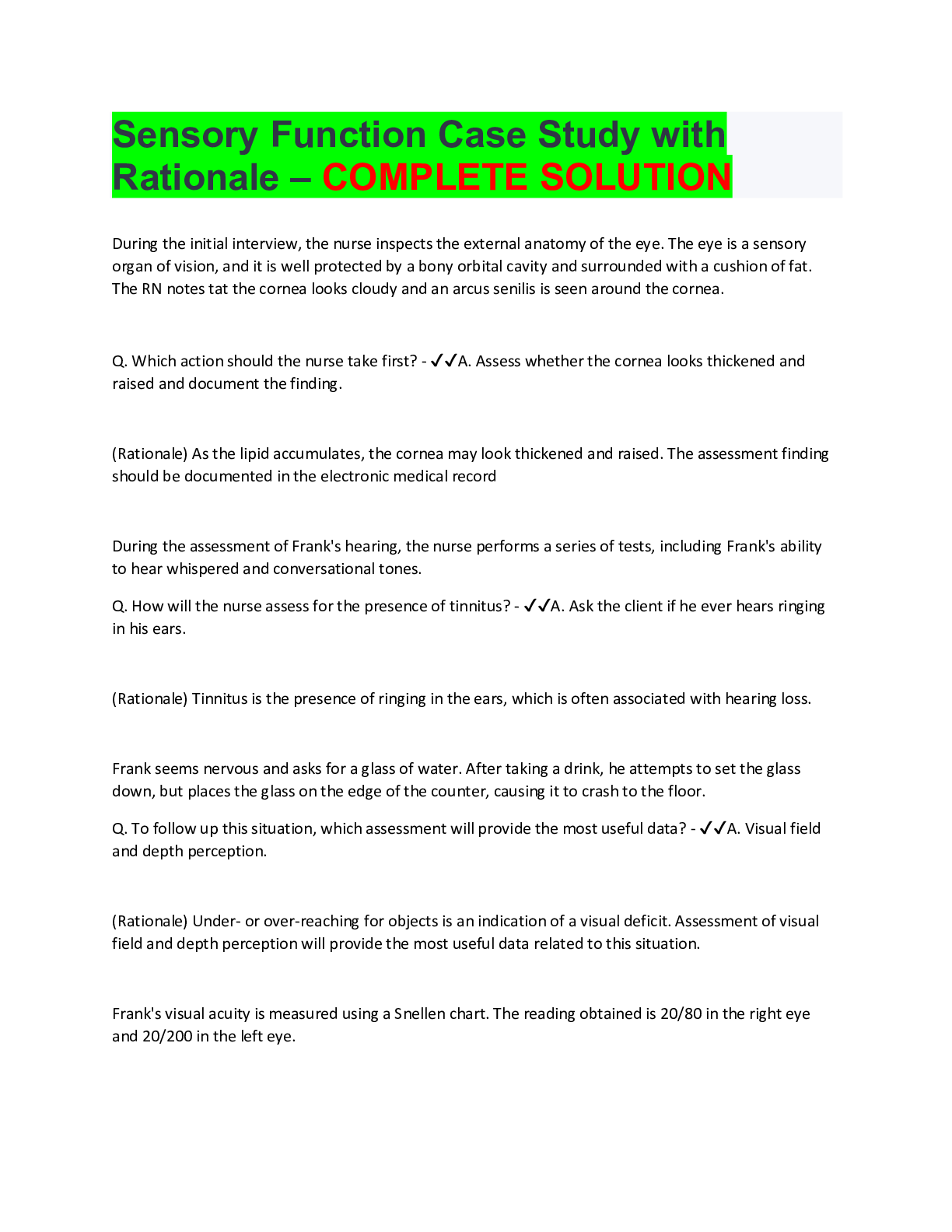
Buy this document to get the full access instantly
Instant Download Access after purchase
Add to cartInstant download
Reviews( 0 )
Document information
Connected school, study & course
About the document
Uploaded On
Sep 16, 2022
Number of pages
9
Written in
Additional information
This document has been written for:
Uploaded
Sep 16, 2022
Downloads
0
Views
70

